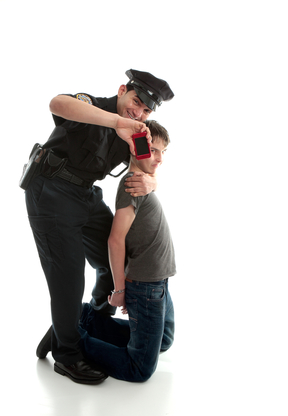As previously stated on this blog, encounters with the police are better for all parties when they are recorded. Ideally, this is with a body camera worn by the officer. For officers on foot patrol, there really is no reason why cameras should not be worn during all citizen encounters.
This brings up the question about a citizen recording an encounter with the police. When is this legal in the State of Iowa, and what are the consequences for doing so? NPR published an excellent article on this today, and their conclusions are valid in the State of Iowa.
In short, you are allowed to record interactions with the police in Iowa, as long as it does not rise to Interference with Official Acts. This means, you cannot interfere with the lawful performance of the officers’ duties. Specifically, you cannot disobey a lawful command from that officer.
If you were being questioned by an officer and pulled out your phone to record, that officer may feel that you using this camera interferes with this investigation. For example, an officer could not conduct many of the standardized field sobriety tests if a suspect has a camera in her hand. Also, holding a camera near an officer’s body could make them nervous, and create an officer safety issue.
And whenever there is a conflict between an officer and a suspect regarding whether that suspect has a right to record, you can bet that the officer will be “right” that night. That means that with a difference of opinion, that officer can still arrest you even if a judge were to later determine you had the right to record. Or more specifically, that you were not guilty of Interference.
Nobody wants to be arrested, or have a conflict with an officer. Therefore, if you are asked to shut off the camera, or to set it down, it is a good idea to do so.
Another conflict arises when officers ask a third party to leave, or step back. Never get involved in a situation involving a third party, unless from a safe, non-Interfering distance.
If an officer asks you to leave the area and you do not, you could be arrested for Interference. If you are far enough away that you cannot be bothering the officer, then an Interference charge would be highly unwarranted. (That does not mean it does not happen though…)
Therefore, go ahead and record an officer’s activity, but make sure you do not get involved, you do not  disobey an officer’s order.
disobey an officer’s order.
To put this into real life examples of what would happen in Iowa City:
If an officer stops you in your car or on foot to conduct an investigation regarding intoxication, an officer can lawfully ask you to set down the camera so he can conduct field sobriety tests. You do have the right to refuse all tests, but if you want to actually do the tests, that camera cannot be up to your face. An officer could feel that he has to arrest you, or at least take you to the station for further testing or observation because he was not able to determine you were safe to drive, or not intoxicated. So that camera use could get you detained.
A common example of a third-party arrest in Iowa City is when a bystander or friend is arrested for Public Intoxication because he was told to leave the area. Perhaps that person is breaking the Public Intoxication law, but the officer had decided to “cut that person a break” and allow them to leave. When that person returns to help their friend, or record the incident, a legal Public Intox arrest could occur.
Remember, an arrest can always take place, whether lawfully or unlawfully. A key component to any interaction with the police is to not fail the attitude test. Be as respectful as possible. Be polite. Do not make any quick movements, and if an officer asks you to step back, be sure to step back.